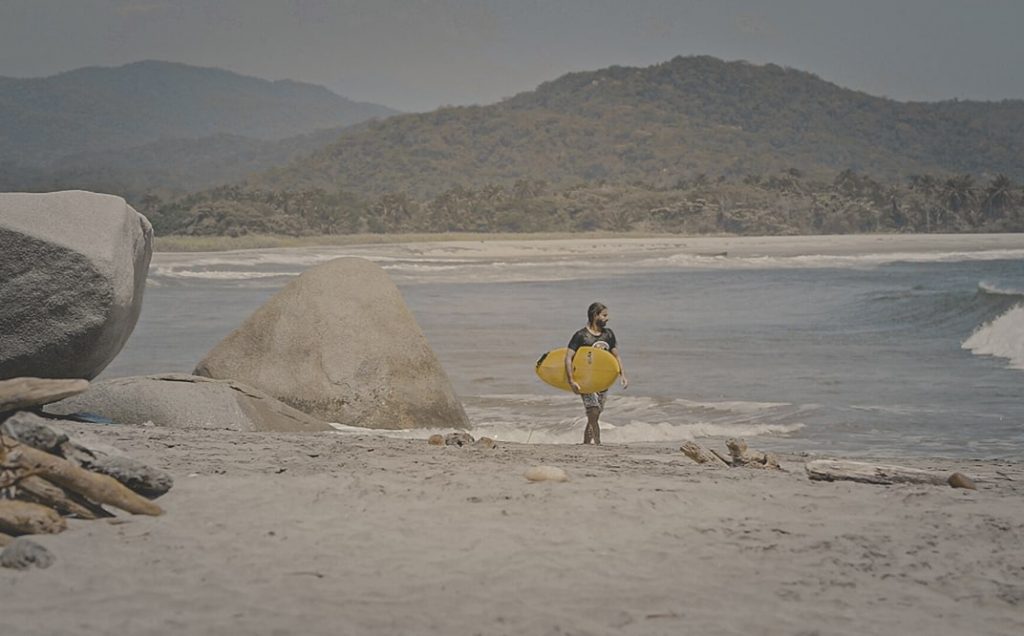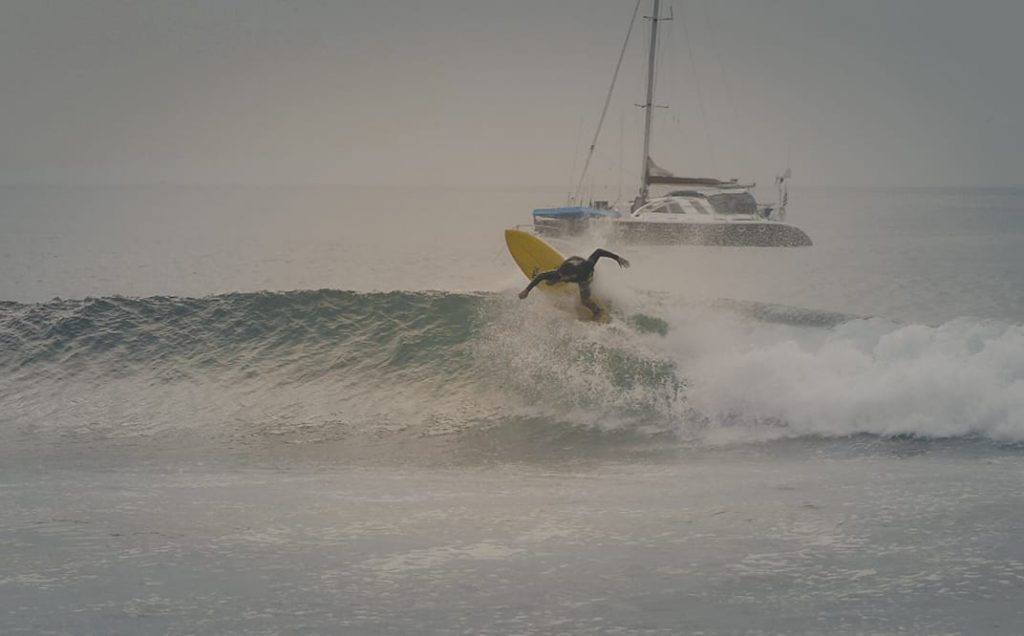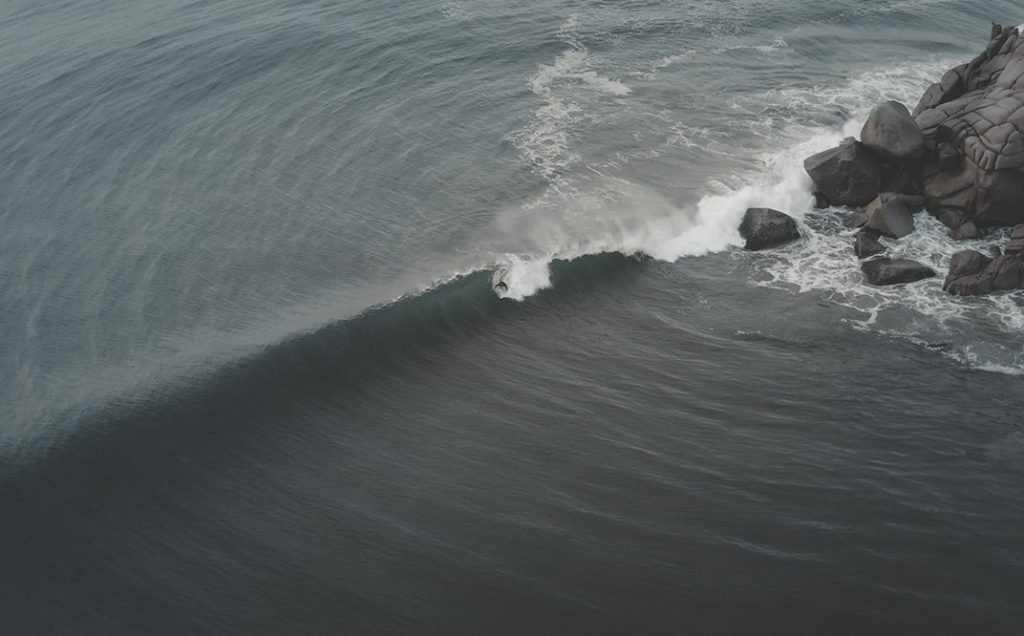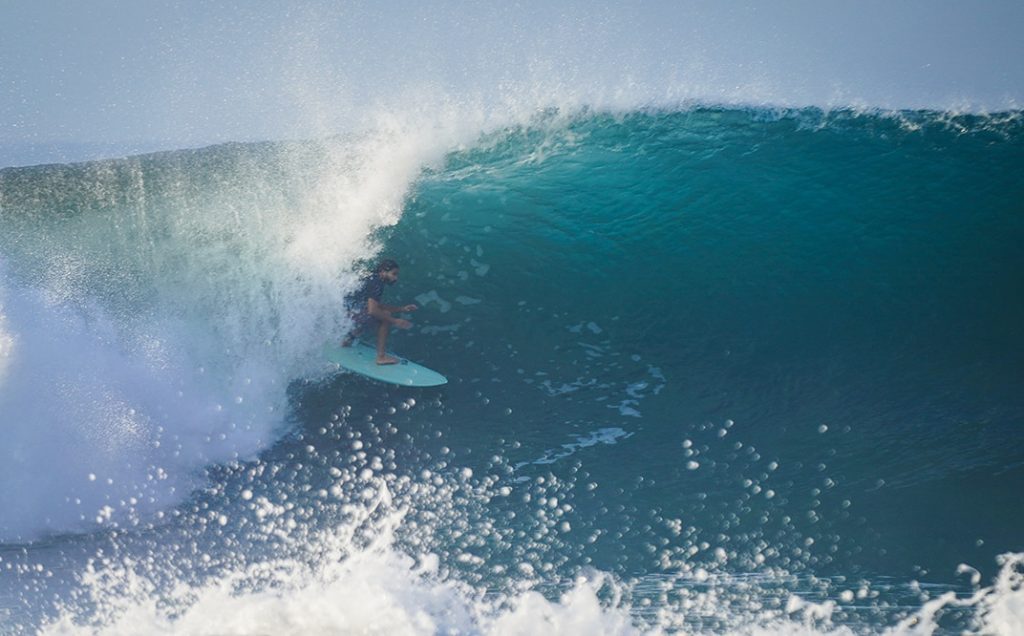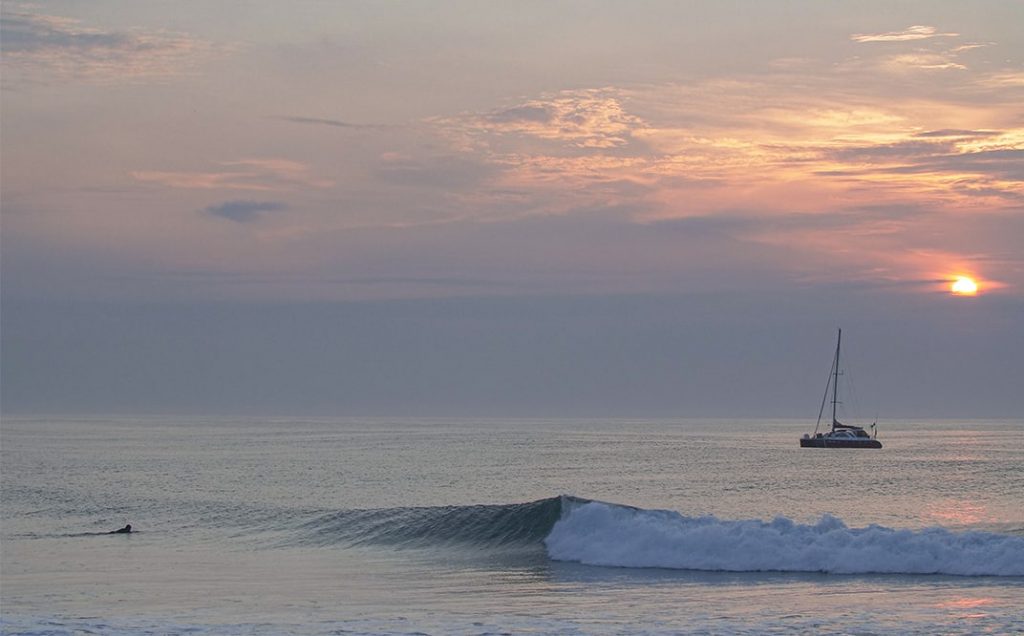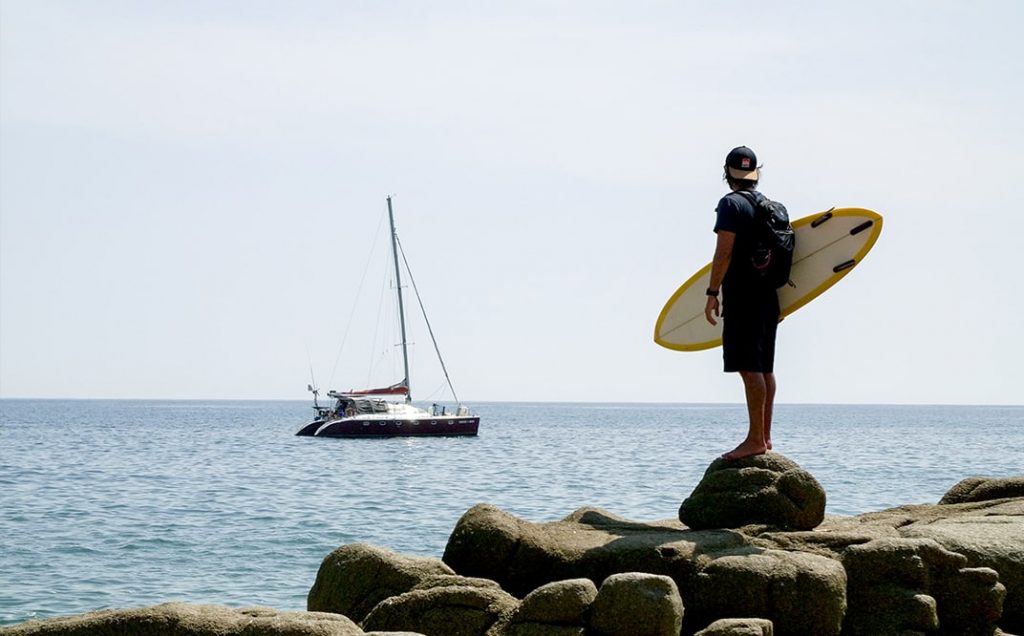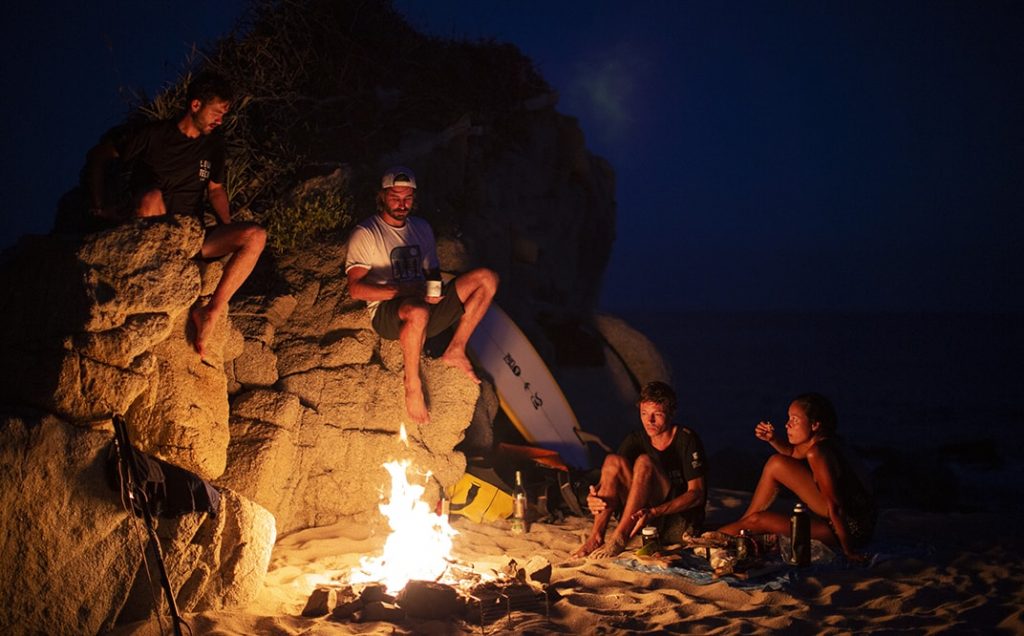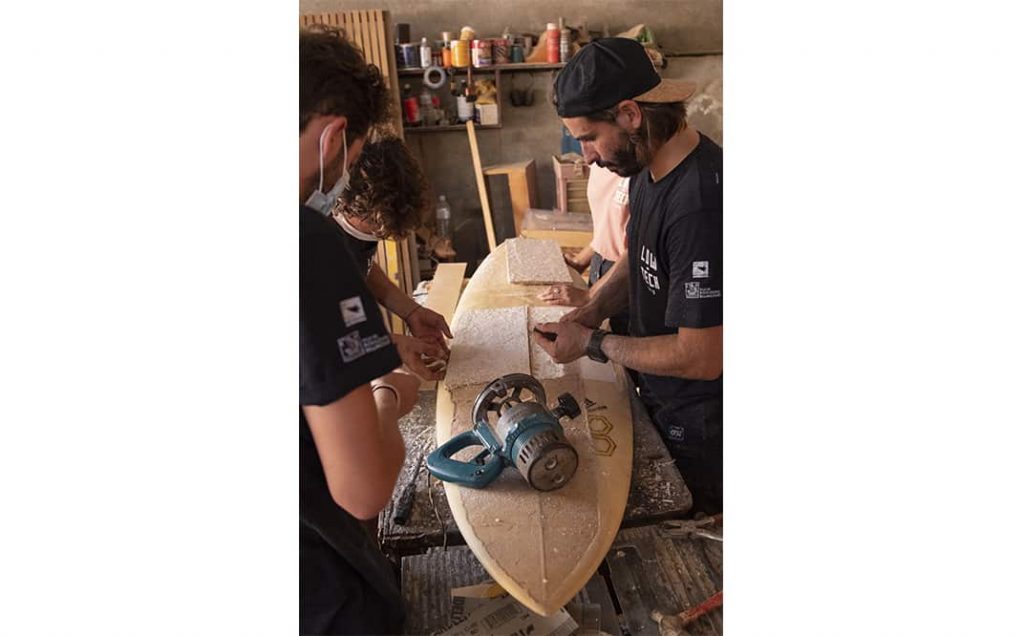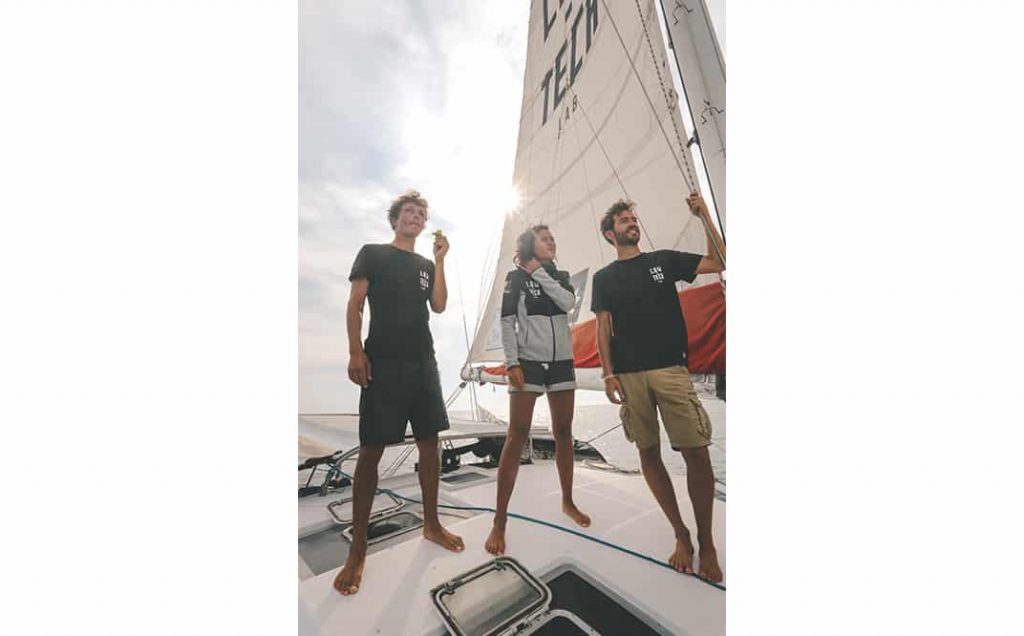Event, Family, Sustainability, Trips
Wave of change, a low-tech surfing adventure
Article published on
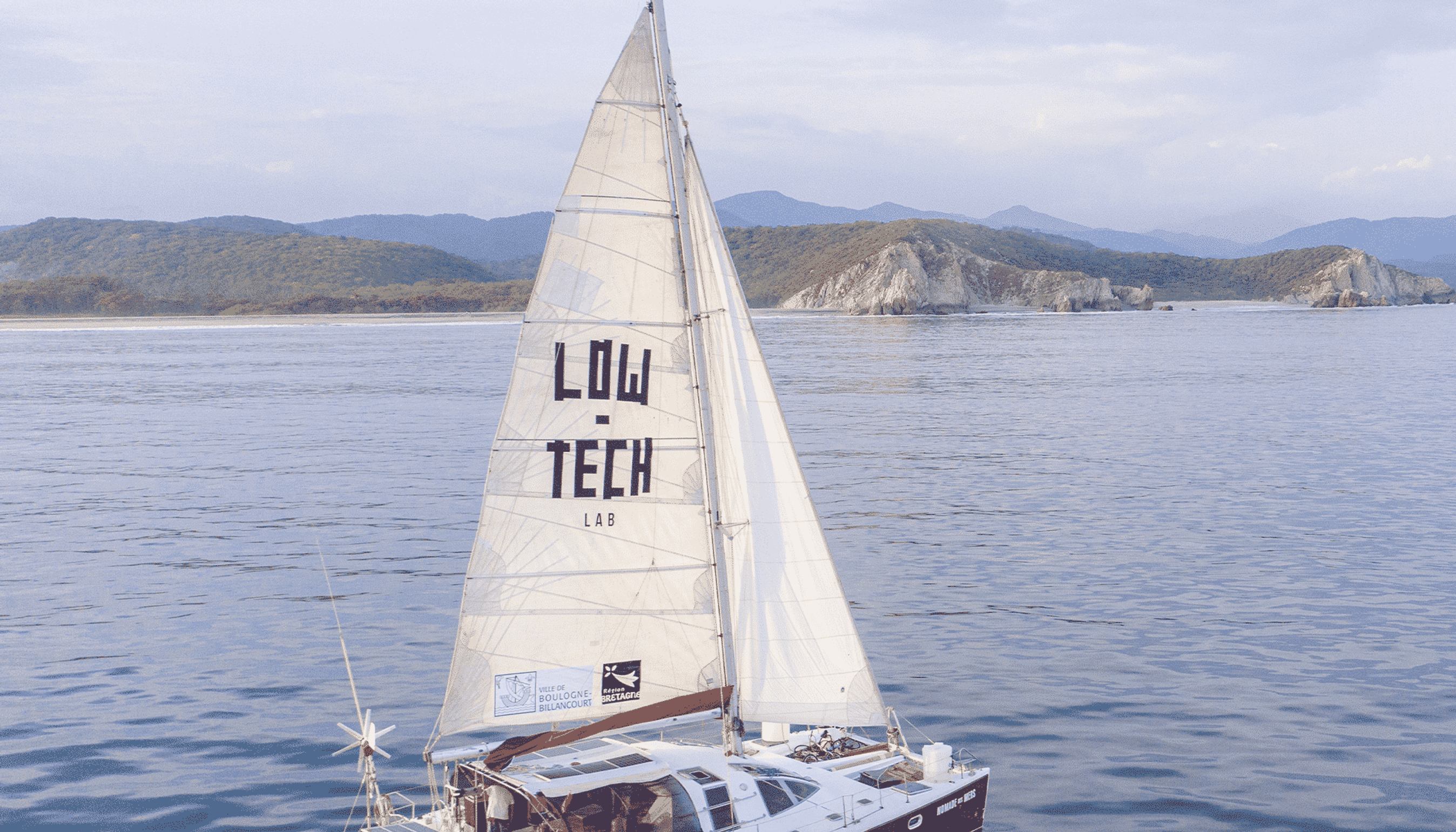
A low tech surfing adventure


Bahia de Huatulco, State de Oaxaca, Mexico, October 2020.
Professional surfer Damien Castera joined Caroline, Corentin, and Guénolé on board the now well-known “Nomade des Mers”, a catamaran currently sailing around the world in search of low-tech innovation, and a pioneer in developing sustainable and affordable technologies. So, what exactly is “Low-technology”?
When compared to “High-tech”, low‑tech can be defined as any technology that is clean and simple. This means technologies that are affordable, made locally, have a low environmental impact, can be easily repaired, and more often than not require a little bit of creativity. An entire encyclopedia of simple ingenious solutions to address our most basic needs: food, energy, water, and healthcare. This is innovation, but of another kind. For weeks on end, they combine their areas of expertise to fuse surfing and low‑technology. This fully self-sufficient expedition uses whatever is at hand, whether repairing an old board with mycelium (the vegetative part of mushrooms), growing food in their biosphere (spirulina, lettuce…), cooking with a solar oven, or even raising crickets… The only rule on board is to go with the flow of the wavesand the wind, taking advantage of each stopover to surf from sunrise to sunset.
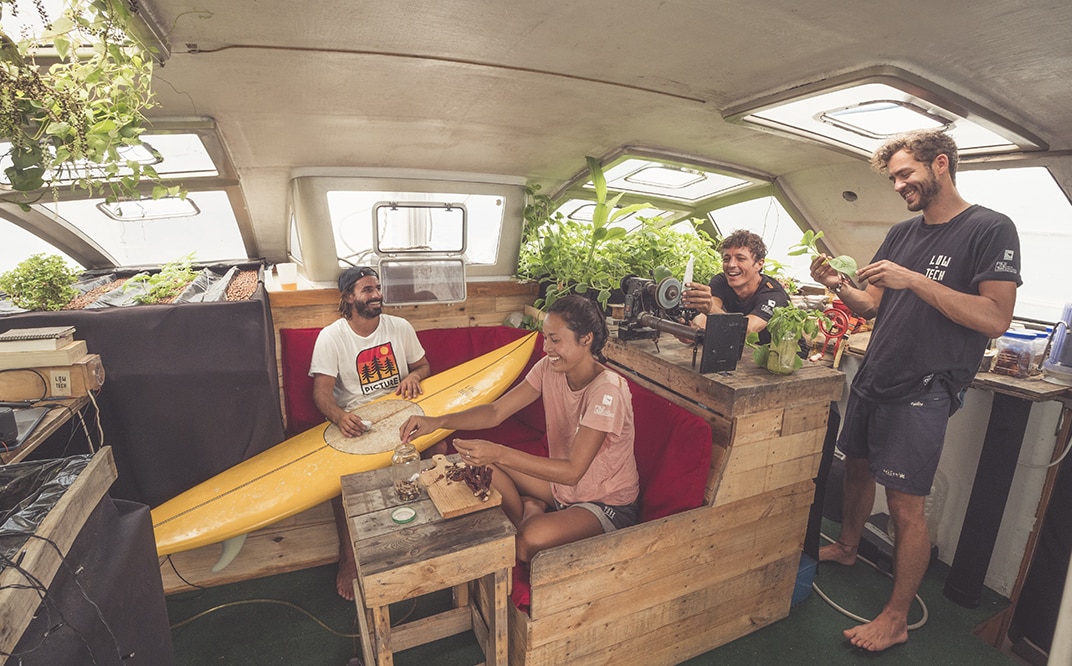
Damien CASTERA
A professional free-surfer and adventurer, member of the French Society of Explorers (SEF), Damien has also participated in seven documentary films covering a wide variety of expeditions. He wrote the book, “Expéditions Odisea, du flocon à la vague”.
After spending several years on surfing’s competition circuit, he decided to stop everything to focus entirely on “free-surfing” and traveling. Since then, free to do whatever, whenever, his expeditions flow to the rhythm of exploration and adventure all over the world. Damien’s trip reports regularly appear in specialized media.
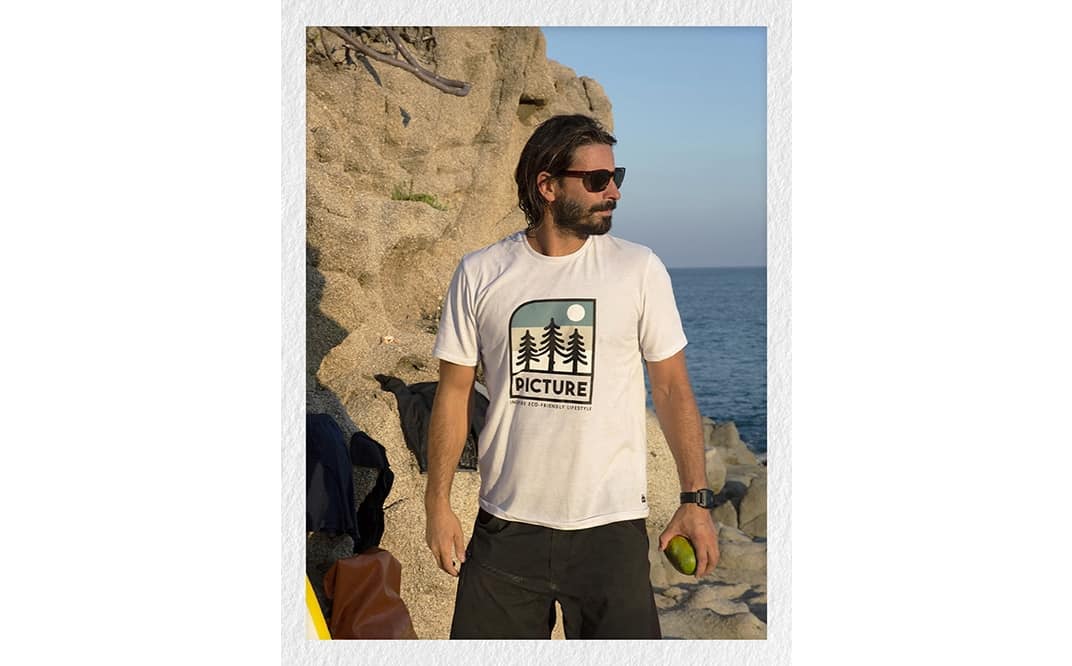
« Aboard the Nomade des Mers, it feels like time and the horizon stretch in sync together. We let the wind push us along at its own pace, using only the Earth’s natural forces to navigate. We travel “with” instead of “against”, and make do with the ocean currents and weather patterns, setting our heading by imagining what lies beyond the horizon. To cook, we use a homemade wood stove. Lighting a fire in the middle of the ocean feels a bit like setting up camp in the trough of a wave. We use kindling gathered at a stopover, use enough coal to cook a meal, protect the fire pit from the wind, and then grill the fish. Whether in an Alaskan forest or the middle of the Pacific Ocean, flames have this incredible power of attraction that warms the body and heightens your senses. »
Pierre FRECHOU
A director passionate about his craft, always navigating between mountain landscapes and the open ocean; an adventurer and surfer, worried about the environment; in 2015 Pierre started his own company “Mr.Ingalss Films” in Basque country. At the same time, he began to work with the Water Family (a non-profit committed to water education and conservation) as well as focus his time and energy on more eco-friendly projects: in the mountains with Picture Organic Clothing (Stormtroopers, Zabardast, Shelter) and in the water with Oxbow and Mathieu Crepel (Shaka).
In 2016, while filming Odisea in Patagonia, he met Damien. Both share the same thirst for adventure and the desire to step off the beaten path to combine discovery, a passion for being behind the camera, surfing, unique encounters, and exploration through their projects.
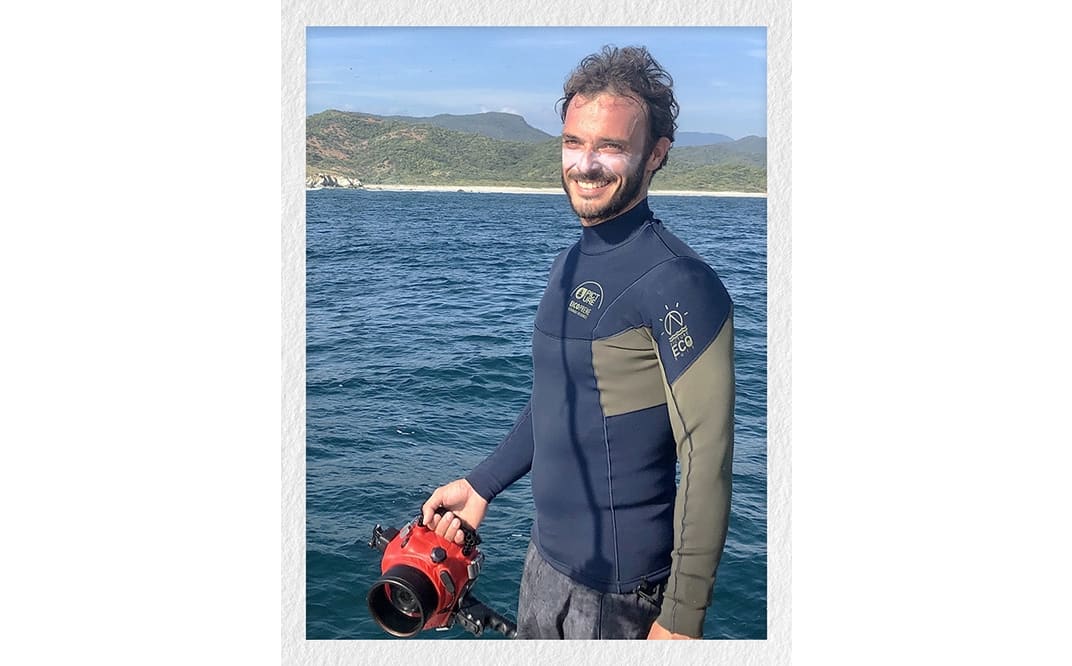
« This type of film shoot involves all sorts of unique challenges, from using solar panels to charge our camera equipment to the beating our gear takes on the high seas, by way of the countless back and forth between the boat and shoreline with fins on to capture just the right shot. It is intense yet so fulfilling! One of the most memorable moments of the trip was sailing for the first time at night under the black starry sky lit up by lightning off in the distance. Not a sound other than the water lapping against the hull, a peaceful ocean, and an amazing bioluminescent show. Then, all of a sudden, we heard the sound of a blowhole by the boat: two dolphins paid us a visit and joined us to enjoy the magical moment. This type of experience makes you realize just how important it is to appreciate the little things the natural world has to offer. »
LOW-TECH LAB

The “Low-tech Lab” is the non-profit overseeing the Nomade des Mers project, a real-life floating laboratory. Since 2015, through several research, experimentation, and collaborative documentation projects, the Low-tech Lab continues to share and promote low technologies friendly to both the planet and humankind. As a floating laboratory, Nomade des Mers has taken upon itself to catalog and develop low technology all across the world.
The remarkable individuals stepping on board for this adventure include:
Caroline PULTZ
Caroline is an interior architect originally from Belgium. Early on she fell in love with the idea of designing furniture using mycelium-based materials. She started Lumifungi, a locally produced and recyclable lampshade made with mycelium fibers. A relatively new crew member, Caroline takes care of the living ecosystem on board the Nomade des Mers, and participates in brainstorming sessions about low-tech living spaces.
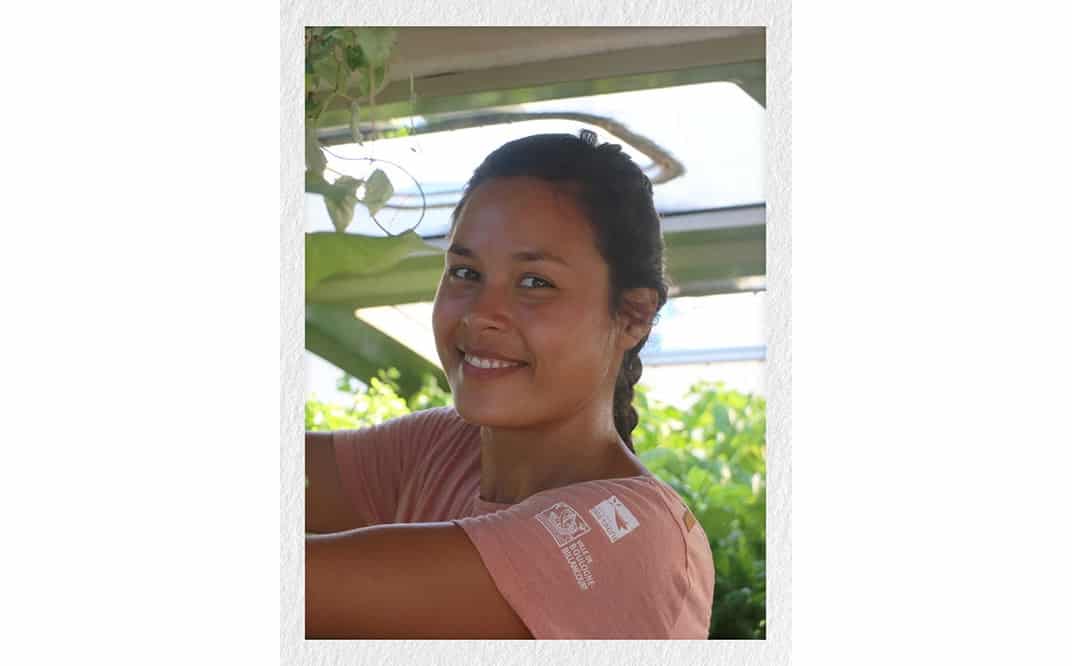
« On one end of the spectrum, there are those people who dream about performing tricks and maneuvers on the world’s biggest waves. On the other end there’s me; I successfully rode a wave on my knees in Barra de la Cruz. I also accomplished a childhood dream by getting a mushroom to surf! »
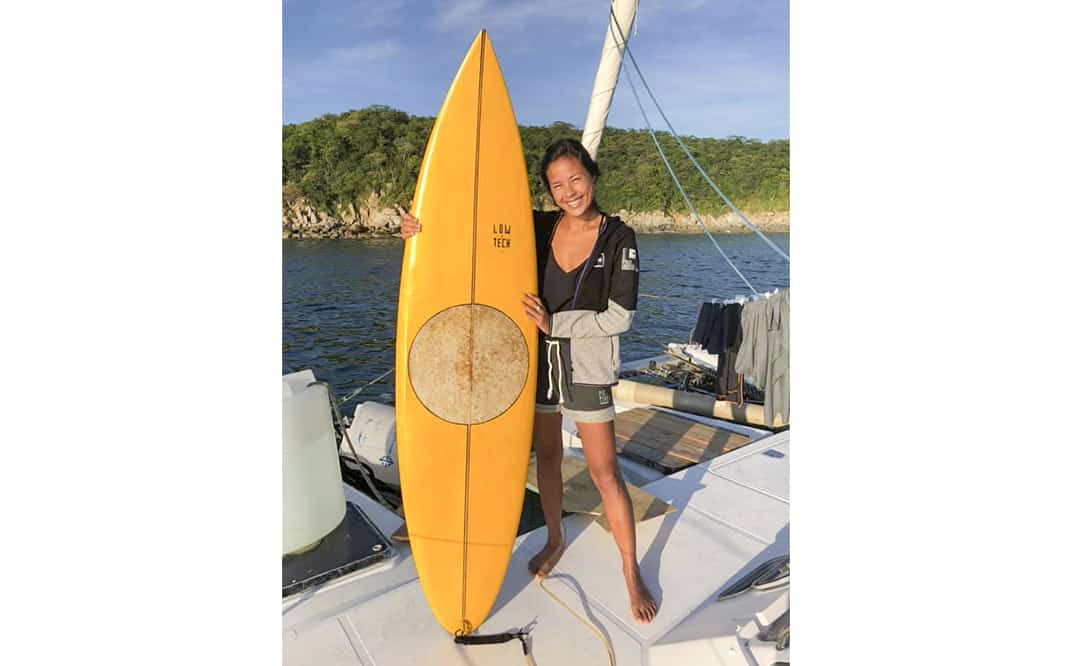
Corentin DE CHATELPERRON
Corentin is an engineer and founder of the Low-tech lab. It all started in Bangladesh in 2010, when he was working on building a boat out of natural jute fibers. To prove jute’s usefulness, he set off on a solo expedition, sailing all the way to France in six months on the first prototype he christened, “Tara Tari”. This experience motivated Corentin to become more self-sufficient. So he decided to experiment for six months in the Bay of Bengal aboard a new jute-fiber boat, the “Gold of Bengal”. Along the way, he noticed the incredible ingenuity of the people he encountered as they applied simple, accessible, and sustainable methods to address everyone’s basic needs. His interest for low-technology was born. In 2014, the Low-tech Lab started by creating a collaborative documentation platform and by setting sail on the Nomade des Mers for an around-the-world tour in search of low-tech innovation.
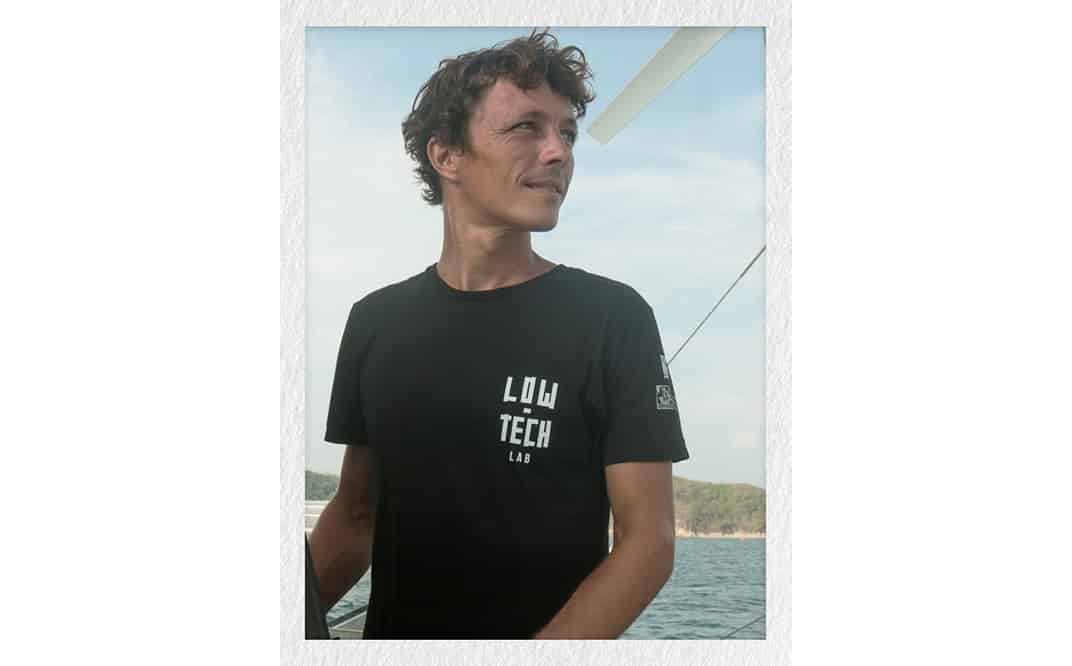
« The Nomade des Mers was anchored in a bay along the wildest of coastlines. Early one morning Damien, Pierre, and I were in the water. It was amazing just watching the sun rise and the pelicans bob up and down riding the swell. Suddenly, the perfect wave appeared… and I was in just the right place (for once). I started paddling, caught the wave, and stood up on my board made from mushrooms. As I surfed, I slid the tips of my fingers along the wall of the wave. In front of me, the lip started to form a tube. I crouched. Pierre was perfectly in position to film me. It felt like I was in a surfing magazine! Then all of a sudden everything changed. The lip formed quicker than anticipated, and crashed down on me hard, reminding me that I was not (yet) a good surfer. I rag dolled as if inside a washing machine. However, I also remember smiling as the water spun me round and round. It was the most spectacular wipeout I had ever experienced. »
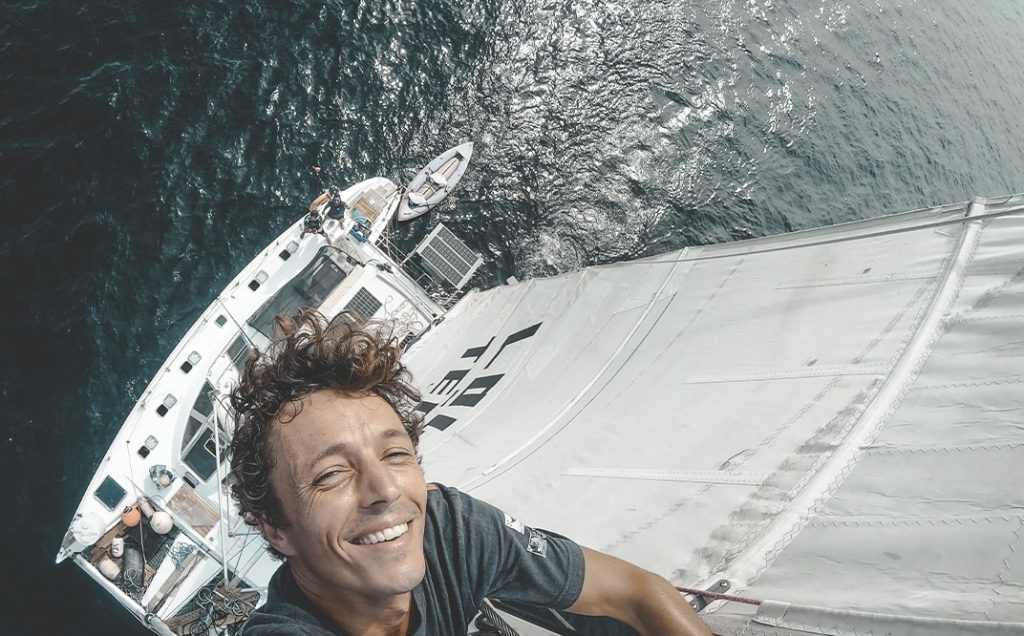
Guénolé CONRAD
Guénolé is an engineer from Brittany looking for adventure. After overseeing humanitarian projects in the jungles of Nicaragua, he embarked on the Nomade des Mers expedition in 2018. His role is to find low-tech projects around the world, to connect with people, and to organize stopovers for the boat. Sometimes he fills in as community manager, cartographer, or simply a deckhand. He is the crew’s “Jack of all trades”.
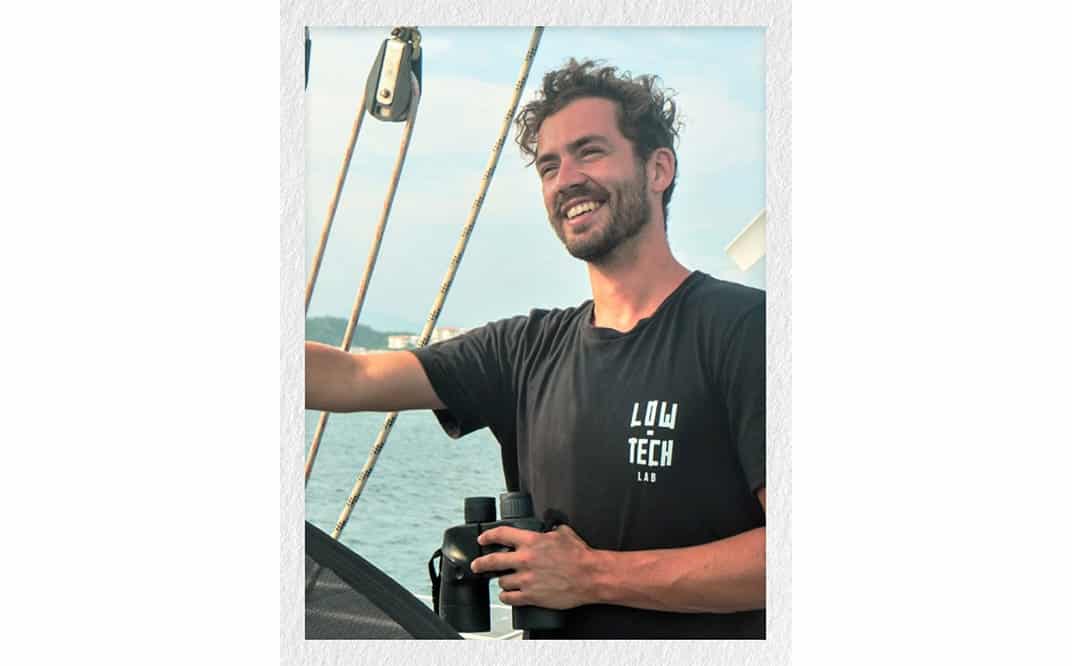
« I can’t help but smile when I think back about the nights where, to get back to the boat from shore, the five of us tried to ‘break through’ the line of crashing waves in an inflatable kayak full of gear. My ears are still filled with water and sand. »
